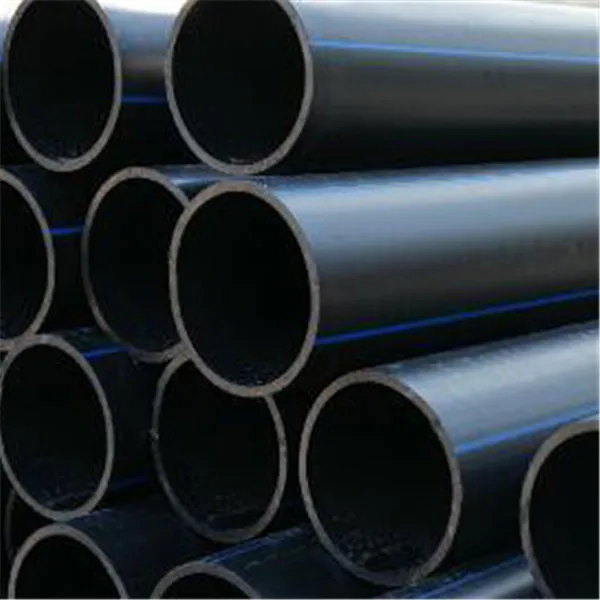Nov . 22, 2024 05:25 Back to list
hdpe drainge pipe
Understanding HDPE Drainage Pipes Benefits and Applications
High-Density Polyethylene (HDPE) drainage pipes have become a popular choice in civil engineering and construction due to their excellent properties and numerous advantages. These pipes are designed for various applications, including stormwater management, sewage disposal, and agricultural drainage. In this article, we will explore the benefits of using HDPE drainage pipes, their applications, and why they are becoming increasingly favored over traditional materials.
What is HDPE?
High-Density Polyethylene (HDPE) is a type of plastic that is known for its high strength-to-density ratio. Its robustness, combined with resistance to impact and environmental stress, makes it an ideal material for drainage systems. HDPE pipes are manufactured using a process that creates a strong, flexible product capable of withstanding high pressures and extensive stresses. This versatility has placed HDPE pipes at the forefront of modern drainage solutions.
Key Benefits of HDPE Drainage Pipes
1. Durability One of the most significant advantages of HDPE drainage pipes is their remarkable durability. These pipes can resist corrosion, chemical exposure, and UV degradation, ensuring a long lifespan. Unlike traditional materials like concrete or metal, HDPE does not rust or corrode, leading to lower replacement and repair costs.
2. Flexibility HDPE pipes offer considerable flexibility, which allows them to bend without breaking. This property is especially beneficial in applications where ground movement occurs, such as in regions with shifting soils. Their ability to expand and contract with temperature changes further enhances their performance in various environmental conditions.
3. Lightweight Compared to traditional materials such as clay or concrete, HDPE pipes are significantly lighter. This characteristic not only facilitates easier transportation and installation but also reduces labor costs and the need for heavy machinery.
4. Smooth Interior Surface HDPE pipes possess a smooth inner surface that minimizes friction and enables efficient flow of water. This smoothness reduces sediment buildup, which can impede water flow, thus maintaining the performance of the drainage system over time.
hdpe drainge pipe

5. Environmental Benefits HDPE is environmentally friendly, as it is recyclable and produced from non-toxic materials. The low energy required for its production contributes to a reduced carbon footprint. Furthermore, the effective performance of HDPE drainage systems helps manage stormwater more efficiently, reducing the risk of flooding and erosion in surrounding areas.
Applications of HDPE Drainage Pipes
HDPE drainage pipes are utilized in a variety of applications, making them versatile and essential components in modern infrastructure
1. Stormwater Management These pipes are commonly used in stormwater systems to direct excess water away from urban areas. They help prevent flooding by efficiently managing runoff, ensuring that water is quickly drained away from roads and structures.
2. Sewage and Wastewater HDPE pipes are highly effective for sewage and wastewater disposal due to their resistance to corrosion and chemical degradation. They can handle the harsh conditions often found in sewage systems without degrading over time.
3. Agricultural Drainage In agriculture, HDPE drainage pipes are used to manage excess water in fields, allowing for better crop growth. By controlling drainage, these pipes help maintain optimal soil moisture levels.
4. Industrial Applications Industries utilize HDPE pipes for various applications, including transporting chemicals and other materials that require durable, non-corrosive piping.
Conclusion
As the demand for efficient and sustainable drainage solutions grows, HDPE drainage pipes continue to gain prominence in construction and civil engineering. Their durability, flexibility, and environmental benefits make them an ideal choice for managing water effectively across various applications. By investing in HDPE drainage systems, communities can enhance their infrastructure, reduce maintenance costs, and promote sustainable practices. Overall, HDPE drainage pipes represent a modern solution to age-old challenges in water management, offering a pathway to more resilient and efficient drainage systems.
-
Durable PP Rigid Sheet: Versatile & High-Quality Plastic Panels
NewsAug.08,2025
-
Premium Glossy PP Rigid Sheet – Durable & Versatile
NewsAug.07,2025
-
High-Quality HDPE Sheet | Durable Plastic Panels
NewsAug.06,2025
-
High-Precision PVC Rigid Sheets for Vacuum Forming | AI-Optimized
NewsAug.05,2025
-
Durable PVC-M Water Supply Pipes | 60-Year Life
NewsAug.04,2025
-
Premium HDPE Water Supply Pipes: Durable & Leak-Proof
NewsAug.03,2025

